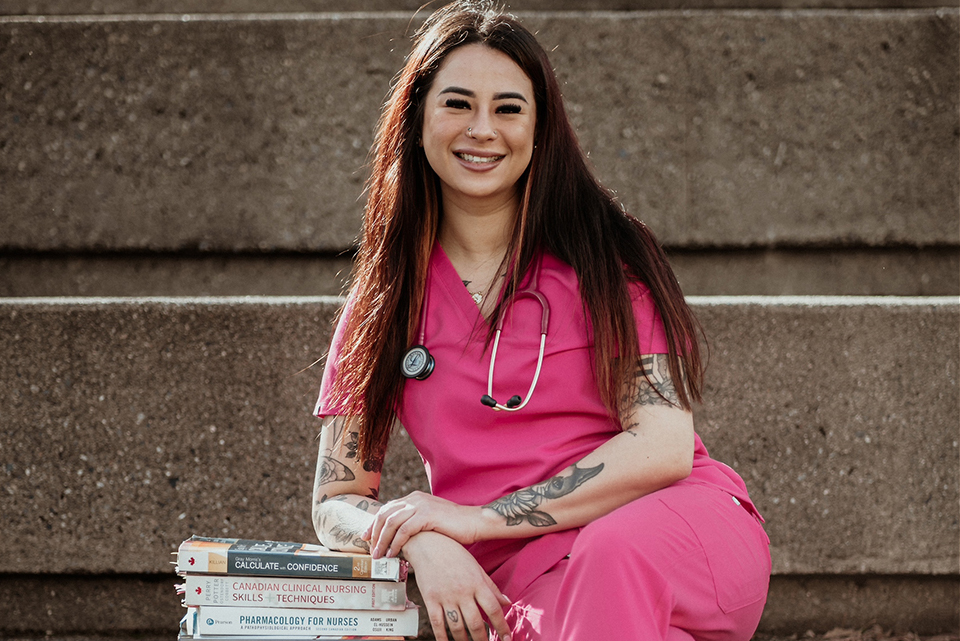Pauline Papp is on her way to becoming a licensed practical nurse through NIC’s APN program.
Pauline Papp had an interest in caring for others, even at a young age, and wanted to work in health care.
She recalls seeing her grandmother transition into home care and wanted to know more about how she could help.
“Being in the health care system was for me,” she said.
Now, she has almost completed the Access to Practical Nursing (APN) program at North Island College, on schedule to graduate with her colleagues in June—the first cohort for the APN.
Currently, she is living in Nanaimo, but she is from Port Alberni and first entered NIC through the health care assistant (HCA) program. She started working in 2018, though she wanted to further her education in nursing, so when the province invested in more “bridging” or “laddering” programs for HCAs to become licensed practical nurses (LPN), she registered.
“I was waiting for a transitional bridging course, and then the opportunity arrived,” she said. “I hopped on it right away.”
Papp describes the program as a great transition between work as an HCA in acute care and studying to be an LPN.
“School itself, of course, isn’t easy, but being in the routine of something I already know kind of made it easier,” she said.
The provincial government committed to helping more people train in the field when it announced in 2022 the Access to Practical Nursing Pathway program.
Earlier this month, the provincial government also announced a plan to improve ratios of nurses and patients. The BC Nurses Union and the Ministry of Health worked together to establish minimum nurse-to-patient ratios for health-care settings in acute care facilities, which should mean more opportunities.
“That’s a huge buy-in for people, to retain nurses,” said instructor Aimee Wheatley. “I think that nursing ratios do help for sure … It answers the need for bedside nurses.”
These investments in recent years have helped more HCAs like Papp continue their training as LPNs. Wheatley said many of the students have gone through NIC’s HCA program and that the APN program was designed to build on what they already know.
“They’re coming with past experience and knowledge. You’re already working with professionals,” Wheatley said. “These are typically the students that have done previous health care experience.”
The full-time program is also blended with in-person and online courses in a way that provides flexibility for the students.
Wheatley and co-instructor Toni Teale have also worked to provide a safe, accessible, approachable class setting for the class.
“I think the smaller class sizes do help … There’s a lot of one-on-one time after,” Wheatley said. “It’s an integrated learning atmosphere, and the instructor really gets to know the student.”
The students also have the chance to get to know each other and build personal and professional relationships with others going into the same field.
“My favourite part was going back and meeting people that have the same goals … they were there to help you. Even though it’s a classroom, you kind of become like a family,” Papp said. “If you ever need anything, you know your teachers are there for you and your peers. That’s something I believe will stick with me outside of school.”
The College is still accepting applications for the next APN cohort, which will start in November. Anyone interested can get more details about the HCA, Practical Nursing and BSN programs at the NIC Health and Humans Services webpages at www.nic.bc.ca/health.
Media Contact C: 250-207-6946 media@nic.bc.caNew nursing student endowment honours life of longtime Comox Valley nurse
